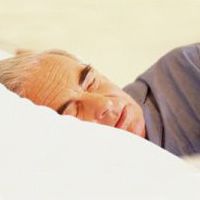Poll Shows How Pain Affects Sleep
A new poll from the National Sleep Foundation reveals that pain joins two related concerns -- stress and poor health -- as key correlates of shorter sleep duration and worse sleep quality.

A new poll from the National Sleep Foundation reveals that pain joins two related concerns—stress and poor health—as key correlates of shorter sleep duration and worse sleep quality. Pain was a key factor in the 42-minute average difference between the amount of sleep Americans with chronic pain said they need and the amount they actually get. The difference was an average of 14 minutes among those who had acute pain in the past week.
Overall, no sleep debt was reported among respondents to the 2015 Sleep in America poll without pain. However, significant numbers of those without pain did report sleep problems. In fact, about one-third of people with no pain did not always or often get a good night’s sleep or the sleep they needed to feel their best, or had trouble falling or staying asleep in the previous week. These issues had an even greater prevalence among individuals with chronic or acute pain.
A number of important findings emerged from the poll, including:
- 21% of respondents experienced chronic pain, and 36% of respondents had acute pain in the previous week, combining to a majority of patients reporting pain.
- 65% of individuals with no pain reported good or very good sleep quality, compared with rates of only 46% among those with acute pain and 36% among those with chronic pain.
- 23% of participants with chronic pain reported higher stress levels, compared with a rate of 7% among those without pain.
- Among those who had sleep difficulties in the previous week, more than 40% of those with chronic pain said those difficulties interfered with their work, compared with 17% of those without pain.
- People with pain were far more likely than others to report that lack of sleep interfered with their mood, activities, relationships, and enjoyment of life overall.
- 23% of individuals with chronic pain said they had been diagnosed with a sleep disorder by a physician, compared with only 6% of all others.
“Clinicians and pain sufferers know that pain and sleep problems present together and aggravate each other,” said Timothy Roehrs, PhD, Director of Research at the Sleep Disorders and Research Center of Henry Ford Health System. “This poll confirms the relationship between pain and sleep. Fortunately, it also shows that simple steps to improving sleep can be beneficial.”
Indeed, the sleep gap narrowed sharply among those who made sleep a priority. Poll participants who said they were very or extremely motivated to get enough sleep reported sleeping 36 more minutes per night throughout the week when compared with others (7.3 hours vs. 6.7 hours). This higher motivation to get sleep was associated with longer sleep duration and better sleep quality even among those with pain.
“Taking control of your sleep by being motivated, setting a routine bedtime and creating a supportive sleep environment are relevant even for those with pain,” said David M. Cloud, MBA, CEO of the National Sleep Foundation. “Sleep is a key marker of health, and good sleep habits are critical for improving the quality of life of those living with chronic or acute pain.”